Cost of Living in Australia vs New Zealand [2024 Guide]

Many people are choosing between living in Australia and New Zealand. The cost of living plays a crucial role in their final decision. If you are considering moving to New Zealand or Australia, you better be prepared to pay a high price in both countries. They are on the list of some of the most expensive places in the world. Yet, they also provide some of the highest quality of life on the planet.
The cost of living in Australia is 17% above that in New Zealand, with the average cost of living in Australia being $2,294 and in New Zealand $2,043 for a single person. In a survey ranking 197 countries across the globe, Australia ranks as the 10th most expensive country, while New Zealand ranks as the 19th.
To help you out, we wrote this article listing how much you can expect to spend in both places with different budgets. Follow through to understand the various aspects of living in New Zealand and Australia. Most prices mentioned in this article are in US dollars unless something else is stated.
Read the full, in-depth article on the cost of living in New Zealand, including my typical expenses.
Living in Australia vs New Zealand, which is better?
Is it cheaper to live in Australia or New Zealand?
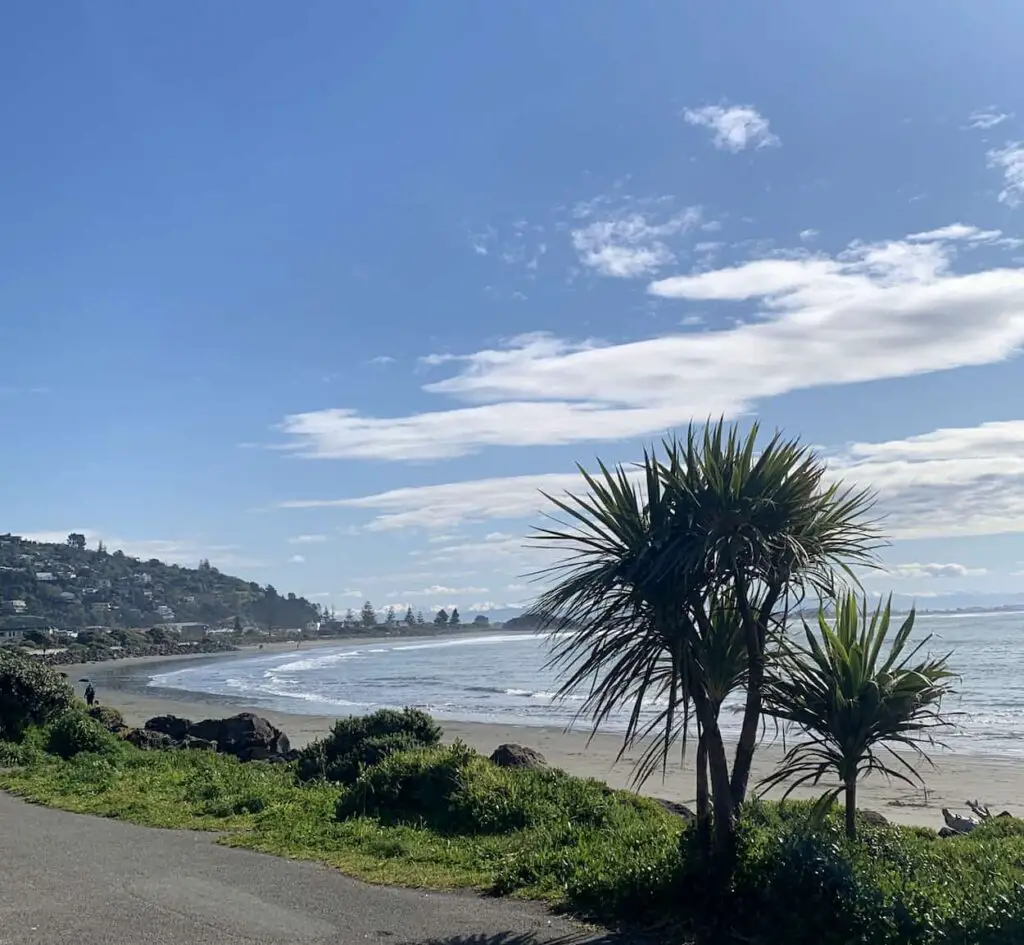
Living in New Zealand is only slightly cheaper than living in Australia. The main point of moving to Australia vs New Zealand is that you will earn more money in Australia.
The average cost of living for a single person in Australia and in New Zealand with a similar lifestyle and quality of life. Let’s look at the living expenses in the largest cities of both countries, Auckland and Sydney.
Statistically, the cost of living in Auckland is 11% lower than in Sydney. Auckland ranks as the 454th most expensive place in the world, and Sydney is 254th. The total monthly cost of living for a single person in Auckland is $2,043, and $2,294 in Sydney.
Here is how these expenses came together (US$):
| Item | Average costs Sydney, Australia | Average costs Auckland, New Zealand |
|---|---|---|
| Rent (studio, one-bed apartment) | $1,331 | $1,163 |
| Utilities | $102 – one person $185 for two people and $256 for a family of four | $102 – one person |
| Food and groceries | $395 – $490 | $504 |
| Transport (car) | $202 | $252 |
| Petrol | $1.41 | $1.71 |
| Transport (public) | $127 | $136 |
| Health insurance | $112 | – |
| Internet | $49.4 | $52.2 |
| Groceries and eating out | $80 – $280 per week | $80 – $250 per week |
| House price per m2 | $7,128 | $6,141 |
| Total | $2,294 | $2,043 |
| Monthly salary after tax | $4,771 | $2,900 |
As you can see, the average living expenses are very similar in both places, however, the income that an average worker enjoys is drastically different. In Auckland, you will have much less money left by the end of the month.
This is also the main reason why people from New Zealand move to Australia. The cost of living is almost the same, but they get paid much better overseas.
Cost of living in Australia
Australia’s cost of living is comparable with Ireland’s, which is slightly higher but almost similar.
Australia is among the top 20 countries with the highest cost of living globally. This makes it more expensive than most major countries, although New Zealand and the US are not far behind.
Also read: Cost of living in New Zealand vs in the US.
Australia’s cost of living can be higher or lower depending on where you live. Major cities have a higher cost of living than areas far from the city.
To have a good quality of life in Australia, expect to spend about $6,250 as a family of four and $3,250 as a single.
Generally, an income of $1,600 a week or $6,400 per month is a good enough salary to live a good life in Australia. If you want to have a slightly luxurious life, an annual income of $100,000 is more than enough.
A family of four needs approximately $4,626 per month to live comfortably, while a family of three requires $3,517. A couple without kids needs $2,840 a month to live comfortably.
One person needs at least $600 weekly to cater to most of their needs. The average weekly spending in Australia is $2,200 for each household.
Living outside Melbourne and Sydney is more affordable. The average cost of living includes food, rent, utilities, and other necessities. Here is a breakdown of items that contribute to the cost of living in Australia:
| Item | Average cost (US$) |
|---|---|
| Rent for a one-bedroom apartment | $400 a week |
| Groceries | $130-200 a week |
| Car insurance | $2,000/year |
| Utilities | $150 – $274/month |
| Mobile phone | $30/month |
| Home internet | $70 to $95/month |
| Meals out | $50–60/week |
| Car | $90 a fill |
| Public transport | $250 for a monthly pass |
| Beer/wine | $5-10 |
Housing in Australia
Renting a buying a place is more expensive in Australia. Here are average rents across main Australian cities:
| City | Average monthly rent for a two-bedroom house |
|---|---|
| Canberra | $3,120 |
| Sydney | $2,817 |
| Darwin | $2,687 |
| Brisbane & Hobart | $2,383 |
| Perth | $2,167 |
| Adelaide | $2,080 |
| Melbourne | $2,037 |
Melbourne and Sydney rank among the country’s most expensive places to live. Purchasing an apartment within and around the city will cost you at least $5,434 per square meter.
Adelaide is one of Australia’s cheapest countries to live in. Houses cost about $2,676 per square meter outside of the city center.
On the other hand, buying a house in Sydney is almost impossible for most immigrants. You will pay $7,036 – $12,206 per square meter, depending on how far the house is from the city.
Cost of living in New Zealand
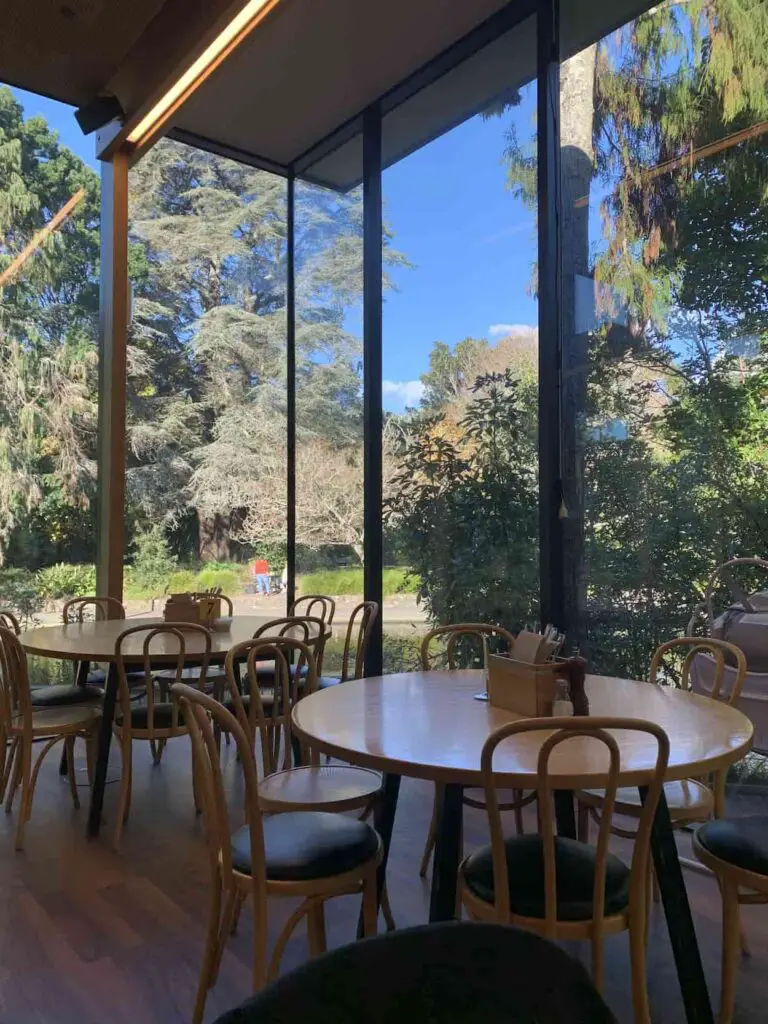
New Zealand is less expensive than Australia; however, the margin isn’t that big.
Similar to Australia, some cities and towns are more expensive than others. Auckland, the biggest city, is the most costly. Statistics estimate that a single person needs $2,989 and a family $5,322 to live comfortably enough.
According to Numbeo, the average monthly rent for a one-bedroom apartment is $1,688 in the city centers and $1,381 in the suburbs.
A three-bedroom house ranges from $2,269 to $2,830 per month. The average price of buying an apartment in the city center is $8,460, while out of the city, the cost averages $6,192.
Housing in New Zealand
Rents and houses are more affordable in New Zealand. There are still some pretty cheap places for renting and buying a home. Rent is paid weekly; hence, here are average weekly rents in major cities:
| City | Average weekly rent for a two-bedroom house |
|---|---|
| Auckland | $650 – $750 |
| Wellington | $600 – $650 |
| Christchurch | $550 – $650 |
| Hamilton | $500 – $600 |
| Rotorua | $500 – $600 |
| Dunedin | $550 – $615 |
To save on housing both in New Zealand and Australia, try Housesitting, you get an entire house for free!
Buying a house is painfully expensive in New Zealand, especially considering average salaries. Yet, properties are still cheaper than in New Zealand. You can get a decent house in a smaller city for about $597,000. Yet, be prepared to pay about a million dollars for a home in Auckland.
The cost of eating out in New Zealand might differ depending on the city and restaurant, but generally are very similar across the country. A meal in typical restaurant costs between $20 and $30. A pint of beer in the bar comes to about $12.
It might seem expensive, but prices are given in New Zealand dollars, if you compare it to Australian rates, it’s actually cheaper.
Cooking at home will definitely save you money, but not by much. The Commerce Commission ranked New Zealand 6th out of 36 countries for high grocery prices. In fact, produce in New Zealand is more expensive than in Australia. Therefore, you will spend more on groceries, although eating out is cheaper.
A single person should expect to spend $100 minimum per week on groceries in New Zealand. Here is a list with average prices for different grocery and food items in New Zealand (US$):
- Milk 1l: $1.83
- 500g of bread: $1.91
- Eggs (dozen): $6.28
- Onions 1kg: $3.00
- Tomatoes 1kg: $6.44
- Lettuce per head: $3.61
Utilities, internet, and mobile networks combined could cost you about $206 monthly. A one-way ticket in New Zealand costs $2,00 – $2.50, while a monthly pass costs $152. Gasoline in New Zealand costs $2.645 per liter. Owning and running a car costs about $200 – $300 per month.
Qualified residents in New Zealand are covered by the government’s healthcare plan, which is funded by taxes. Consequently, you don’t have to pay for health insurance.
However, when visiting a general practitioner, a patient pays an initial fee of about $60 per visit. This is the only expense you will encounter.
Cost of living for a family in Australia vs New Zealand
A family of four living in Australia would need approximately $6,840 a month to sustain a good standard of life.
A couple with one child will need $5,200, while a family of two can live comfortably with $4,200 per month.
In New Zealand, an average family of four spends NZ$7,640 per month, which is US$4,767, and is less than in Australia.
Generally, as a family, you can live on $5,000-$6,000 and don’t struggle. However, it’s still quite a lot of money in New Zealand, and most probably, both parents have to work to keep this lifestyle.
In contrast, thanks to the high average salaries, only one person can sustain a family in Australia.
Here is what you will spend as a family in Australia (AU$):
- Rent: $3,000 for a three-bedroom house
- Food and groceries: $800
- Utilities: $300
- Internet: $95
- Health insurance: $200
- Transportation: $400
In New Zealand, your basic expenditure will look as follows (NZ$):
- Rent: $2,400 for a three-bedroom house
- Groceries: $1,000
- Utilities: $200
- Internet: $75
- Health insurance: 0
- Transportation: $300
Read about the cost of living for a family in New Zealand.
Salaries in Australia vs New Zealand

Australia has a higher average salary than most countries worldwide, including New Zealand. The wages in Australia range from $56,962 to $104,790 annually. The national average salary in 2022 was AU$1,805 per week or AU$86,640 ($57,697) annually.
A general Australian rule is that you should aim for at least $50,664 annually. A fresh graduate in Australia earns roughly $48,755 annually. Sydney and Melbourne rank as top-paying cities in Australia.
Here is a listing of average salaries in Australia for different professions:
| Job | Average annual salary (AU$) |
|---|---|
| Lab Technician | $74,100 |
| Photographer | $77,074 |
| Service Engineer | $86,994 |
| Traffic Engineer | $97,376 |
| Technical Engineer | $100,004 |
| Design Engineer | $107,250 |
| Developer | $109,998 |
| Engineer | $112,469 |
| Full Stack Developer | $120,000 |
Australia’s highest-paying sectors have the following average annual salaries:
- Engineering: $110,960
- Information Technology: $106,250
- Healthcare and Pharmaceuticals: $103,818
- Science: $102,599
- Banking and Finance: $98,860
- Childcare and education: $97,407
- Sales and Marketing: $93,942
- Legal services: $91,995
- Accounting, Human Resources and Administration: $90,483
Earning $67,772 annually in Australia leaves you with around $51,380 net salary, which is suitable for living comfortably in Australia.
The average salary in New Zealand is about NZ$58,000 (US$36,189) annually. Here is a ranking of salaries in New Zealand’s popular working sectors:
| Sector | Average annual salary (NZ$) |
|---|---|
| Accounting and Human Resource | $78,735 |
| Banking and Finance | $79,230 |
| Education and Childcare | $76,552 |
| Engineering | $91,932 |
| Healthcare | $98,531 |
| Information Technology | $83,074 |
| Legal | $85,554 |
| Science | $77,161 |
| Security and Law Enforcement | $68,446 |
| Construction | $69,174 |
Read more about salaries in New Zealand in our guide.
Earning $50,000 annually in New Zealand leaves you with $41,285 in disposable income. That’s enough for a decent standard of living in most cities. Talent.com estimates the following annual averages for different job titles in New Zealand (NZ$):
- Data analyst: $84,047
- Office manager: $35,645
- Strategy analyst: $56,832
- Operation analyst: $41,473
- Architect: $135,000
- Professor: $143,251
- Electrician: $67,928
- Bartender: $46,118
- Dentist: $240,000
- Writer: $76,442
- Security guard: $47,834
- Market analyst: $48,236
- Cashier: $44,753
The amount of salary you get in both countries depends on the following factors:
- Skill demand
- Work experience
- Industry
- Employer and region of employment
- Labor force market
- Salary negotiation skills
Read the full guide on salaries in New Zealand vs Australia.
Taxes in Australia vs New Zealand
The last question is, where do you pay more taxes?
Here are income tax rates for tax residents of Australia for 2024:
| Taxable income (AU$) | Tax on this income |
|---|---|
| 0 – $18,200 | 0% |
| $18,201 – $45,000 | 19% for each $1 over $18,200 |
| $45,001 – $120,000 | $5,092 plus 32.5% for each $1 over $45,000 |
| $120,001 – $180,000 | $29,467 plus 37% for each $1 over $120,000 |
| $180,001 and over | $51,667 plus 45% for each $1 over $180,000 |
Plus, you pay 2% of your income for Medicare.
Below are the income tax rates in New Zealand for 2024 (NZ$):
- Up to $14,000: 10.5% tax rate
- $14,000 – $48,000: 17.5% tax rate
- $48,000 – $70,000: 30% tax rate
- Anything over $70,000: 33% tax rate
It’s hard to estimate how much taxes you will pay exactly, yet, rates seem to be lower in New Zealand.
Cheapest places to live in Australia vs New Zealand
Australia
Canberra is one of the most affordable places to live in Australia. According to Numbeo, the cost of buying a house in Canberra’s city center is $4,480 per square meter and $3,208 outside the city center. The rent for a one-bedroom apartment in the city center costs $1,391 per month.
A family of four average monthly living costs $2,937, and a single person’s $816 without rent. A three-course meal in Canberra costs $72 in a mid-range restaurant.
Adelaide is also among Australia’s most affordable cities. Its transport and housing costs are 14% cheaper when compared to major cities. The average cost of living in Adelaide is $3,035 for a family of 3 and $3,885 for a family of four.
To rent a one-bedroom apartment in the city center will cost you $1,604 per month.
Gold Coast is another cheap place in Australia to live in. One person living on the Gold Coast can spend $825 monthly, excluding rent.
Essential utilities could cost an average of $120 monthly. One meal in an inexpensive restaurant costs $13. Yet, properties are overpriced; buying an apartment in the city center will set you back $9,254 per square meter.
Geelong is also an alternative if you’re looking for a cheap place to live near Melbourne. The city is known for its vast sports culture. The average cost of living in Geelong is $1,993 per month. While the average monthly rent is $1,287.
The average monthly costs of other expenses in Geelong are as follows:
- Rent: $1,200
- Utilities (water, electricity, and garbage collection) – $153
- 60 Mbps prepaid internet – $53
- Public transport monthly pass – $156
Moreover, the average cost of living for a family of four is $2,695 per month, excluding rent. Houses in the city center cost $6,674 per square meter. The net salary after tax in Geelong is $4,496 monthly.
New Zealand
In New Zealand, you will find cheaper places to live because the cost of living in the area is lower overall.
The city of Whanganui starts our list for New Zealand of the most affordable places to live in. The average cost of buying a home in Whanganui ranges from US$155,478 to US$267,871. The average weekly rent price in this city is only US$280 for a two-bedroom house.
Dunedin is the 2nd largest city on the Southern Island. The area has fair rental prices; expect to pay US$250 – US$300 per week for an unfurnished 2-bedroom.
The cost of living for one person in Dunedin is US$841 per month, excluding rent. Buying an apartment costs US$3,128 per square meter, which is a bargain for New Zealand.
Rotorua is also an option for cheaper living in New Zealand. Buying a house in Rotorua costs US$4,692 per square meter. Expect to pay US$300 – US$350 weekly rent in this region. To fund a lifestyle worth US$3,230 in Auckland, you need US$2,403 in Rotorua.
The cost of living in New Zealand is cheaper than in Australia; however, not by far. Several New Zealand residents relocate to Australia for a better life but end up back home because of community and cultural reasons.
Australia has larger cities and higher pay, while New Zealand residents believe in life away from work.


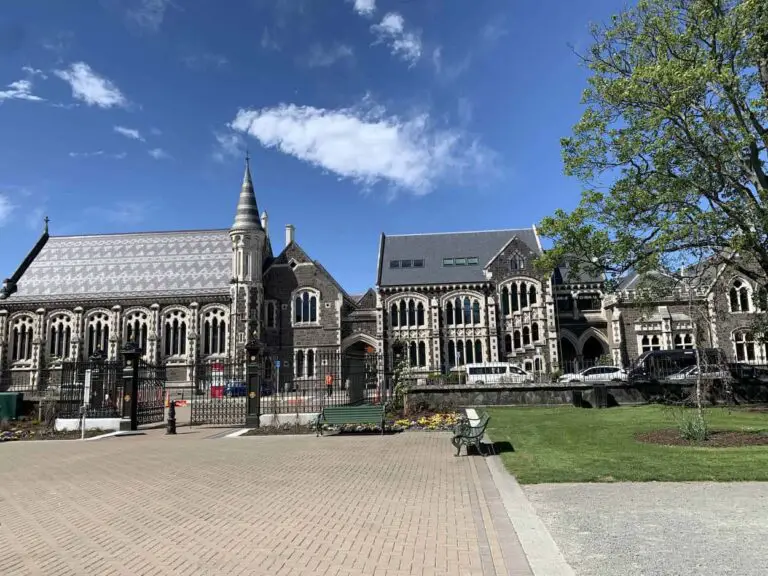

![Cost of Living for An Average Family in New Zealand [2024 Guide]](https://simplenewzealand.com/wp-content/uploads/2023/01/Depositphotos_48225999_L-768x512.jpg)
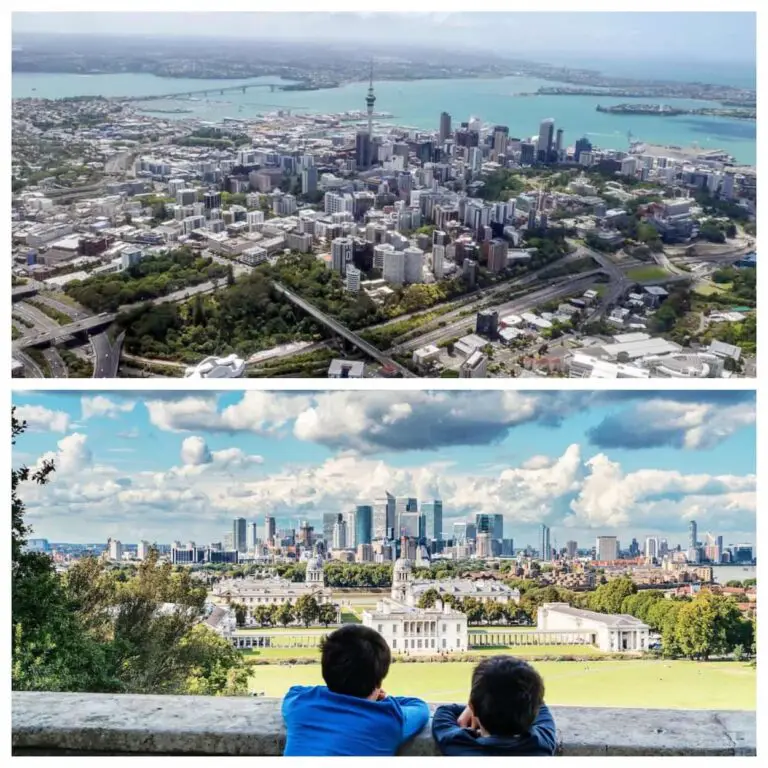
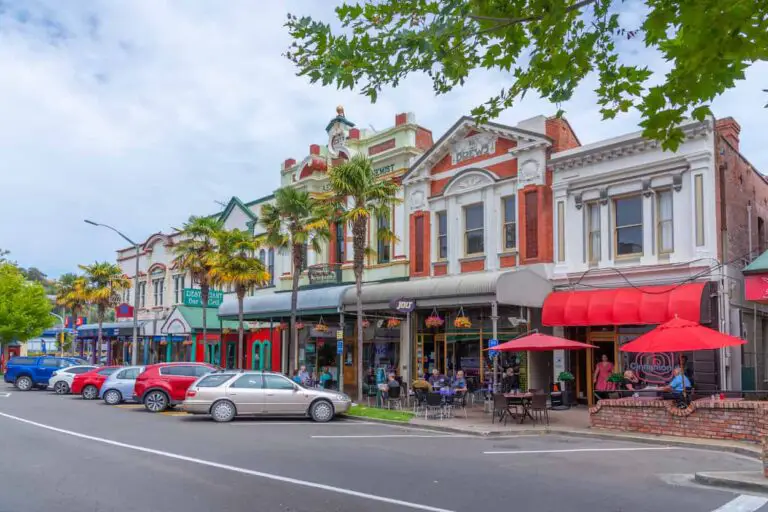
![What Is A Good Salary in New Zealand? [2024]](https://simplenewzealand.com/wp-content/uploads/2022/11/thomas-coker-M8fYycGWuMA-unsplash-768x432.jpg)